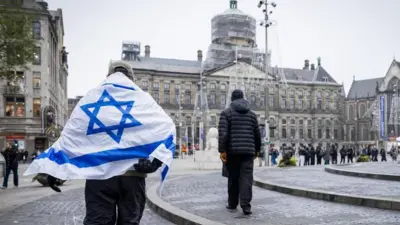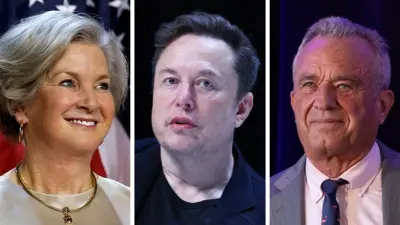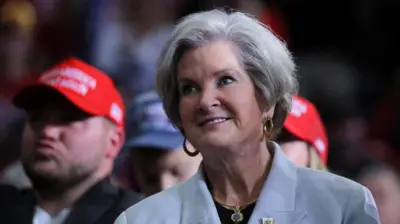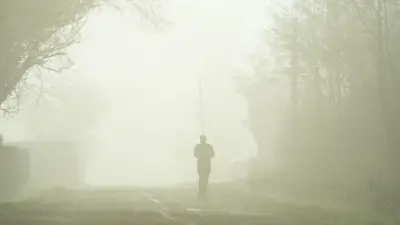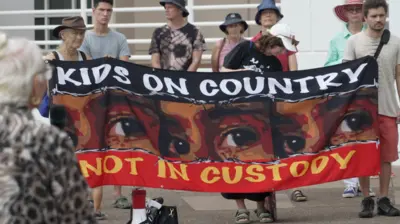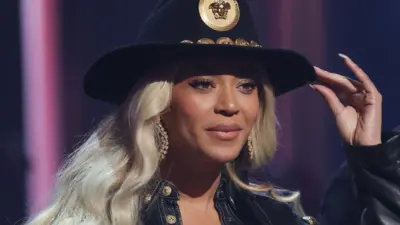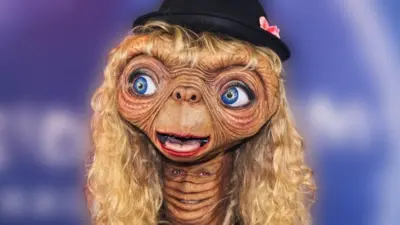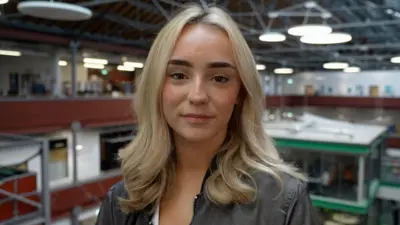We've updated our Privacy and Cookies Policy
We've made some important changes to our Privacy and Cookies Policy and we want you to know what this means for you and your data.
Irish president to face challenger in unusual poll
Image source, PA
- Author, Luke Sproule
- Role, 91»»Ī¨ News NI
Sinn Féin's decision to contest Ireland's presidential election means an incumbent president will face a challenger for just the second time ever.
In 1966, √Čamon de Valera narrowly beat Tom O'Higgins, but all other Irish presidents who have chosen to stand for a second term have been re-elected unopposed.
It adds an element of the unknown to this year's contest.
It is an unusual feature of the Irish presidency, with almost all other presidents in democracies required to go to the people before being given a renewed mandate.
So why did this trend persist throughout the 20th Century, with the exception of 1966?
Eoin O'Malley, associate professor in political science at the school of law and government at Dublin City University, believes parties have been unwilling to spend time and money on a largely ceremonial post.
"Normally there is nothing in a presidential election really, there is no policy going to be decided, so when you have a president who is working out and doing well the political establishment is happy to keep that person in situ," he said.
"Elections cost money and parties are reluctant to spend money."
Unbeatable?
The 1966 election was different for a number of reasons.
The incumbent president was 83-year-old √Čamon de Valera, a commandant during the 1916 Easter Rising against British rule, a political leader in the War of Independence and the founder of Fianna F√°il.
He was prime minister (taoiseach) in three separate spells and had also been a leader of the anti-Treaty side during the Irish Civil War, which opposed the peace deal signed with Britain that ended the War of Independence.
His opponent, Tom O'Higgins, was a member of Fine Gael, a political party with roots in the pro-Treaty side of the civil war.
In a shock result, de Valera won by a margin of just 10,718 votes - about 1%. He had been predicted to win much more comfortably.
"De Valera was seen as partisan. It was seen that he was Fianna F√°il and that his opponent was Fine Gael," said Mr O'Malley.
"Fianna F√°il did not quite have 50% of the support in the county and so anybody who did not like Fianna F√°il would have voted for O'Higgins."
'Bitterness'
1966 marked 50 years since the Easter Rising and Mr O'Malley argues that there was still a level of "bitterness" between Fine Gael and Fianna F√°il linked to the civil war.
O'Higgins' uncle, Kevin, was deputy prime minister of Ireland but was assassinated by the IRA in 1927 in retaliation for his pro-Treaty role in the civil war.
This time around things are different.
Michael D Higgins has served an uncontroversial first term and last October a poll by the Irish Times/Ipsos MRBI found that 64% of voters wanted him to stand again.
Fine Gael and Fianna F√°il - the governing party and official opposition respectively - have decided to back Mr Higgins rather than nominating their own candidates.
Mr O'Malley thinks other potential candidates and their backers have seen this election as a good chance to raise their profile, particularly new Sinn Féin leader Mary Lou McDonald.
"I do not think there is a chance of another candidate beating Michael D Higgins - Sinn Féin know he is probably unbeatable," said Mr O'Malley.
"But it is about raising the profile of a candidate and of Mary Lou McDonald, who will be the only leader of a major party campaigning in this election."
In 1966 de Valera, as a sitting president, did not campaign in a traditional sense.
Mr O'Malley expects Mr Higgins will adopt the same tactic.
"He will not be able to campaign the way candidates normally do and there will not be much canvassing from him or participation in TV debates because it might seem a little unseemly," said Mr O'Malley.
The result could mean Mr Higgins' rival is left to fight it out while he watches from the sidelines.
It means surprises could be on the cards when the final votes are counted.
Top Stories
More to explore
Most read
Content is not available
